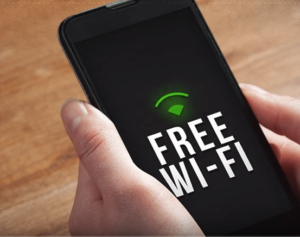The exponential growth of the internet is making it hard to keep some crucial things such as privacy and security in check. Coupling this with cybercriminals, governments and poor privacy mechanisms, it’s hard to maintain the little privacy one has achieved. But what is making it worse is the fact that many people believe in privacy myths and this is a big vulnerability.
We’ll look at some of the privacy myths that are stripping your online privacy and security away.
Modo incógnito te hace Anónimo
The only thing incognito mode does is to ensure that you are only private locally, at the browser level on your computer. That said, the browser will not record any activities that you do from the moment you switched to incognito mode. This mode does not, however, keep your online privacy intact at all. Your Internet Service Provider (ISP), cybercriminals and even other prying eyes on the internet will still know what you have been doing.
Los ciberdelincuentes sólo se fijan en personas importantes
Es cierto que los ciberdelincuentes atacan sobre todo a personas y organizaciones importantes. Pero para cubrir sus huellas, los ciberdelincuentes atacan a todo el mundo dentro de un radio de acción específico o incluso destruyen toda la red. Además, al atacar a un grupo más grande, los ciberdelincuentes pueden obtener otros beneficios acumulados, como archivos importantes, información bancaria y otros registros útiles. Así que, por casualidad, si no está preparado, puede que le pillen desprevenido y caiga en el ataque generalizado del atacante.
No hay necesidad de privacidad si no hay nada que ocultar
There’s a reason why privacy is a human right, and its protection is necessary. That’s why we have passwords that no one knows and even locks on our doors. In the digital world, what you view as nothing could mean a great fortune to a cybercriminal. For instance, you may have nothing to hide, so you let your guard down. Since you will be on a network/internet, cybercriminals may use your device as an entry point and in turn affect other users.
So, by extension, you are a privacy risk if you say you’ve got nothing to hide.
WIFI público te hace Anónimo
A few people still think that public WIFI provides an excellent spot to hide in plain sight. Well, that’s not the case anymore. As a matter of fact, Public WIFI is still not secure even if some level of security is implemented on the WIFI. Nowadays, cybercriminals use advanced tools and techniques to acquire or destroy the information they want in the quickest way possible. Tools such as sniffers and tracers can be configured to look for something in particular, for instance, cybercriminals can set these tools to only capture traffic with bank details or social media usernames and passwords.
In a nutshell, you won’t be able to hide in plain sight when using Public WIFI; you just be another victim waiting for the inevitable to happen; a privacy breach.
Todas las VPN son buenas
Only reputable VPNs will be able to protect your data from internet security and digital privacy breaches. But since these reputable VPNs can be expensive, most people tend to use Free VPNs. Free VPNs are not bad, but a majority of them are just a greater privacy risk (i.e., most free VPNs may not have a privacy policy), and hence they keep logs of the activities you do on the internet. This data can then be sold to third parties for the VPN to make some revenue. In case of a legal event, these free VPNs can be subpoenaed and produce your records. Also, free VPNs may push intrusive ads that will further strip your privacy away.
To keep your privacy intact, use premium VPNs, they will give you value for your money.





